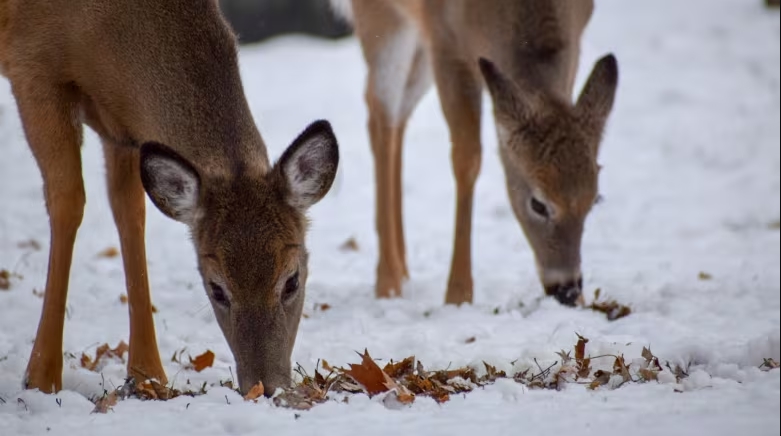Calls for Deer Cull in B.C.'s Kootenay Region After Third Case of Chronic Wasting Disease
Subhadarshi Tripathy
11/22/20242 min read


The B.C. Wildlife Federation is urging the provincial government to implement a deer cull in the Kootenay region following confirmation of a third case of chronic wasting disease (CWD) in the area.
Often referred to as “zombie deer disease,” CWD is a fatal neurological illness that affects cervid species, including deer, elk, moose, and caribou. This incurable disease, caused by an abnormal protein known as a prion, has been spreading rapidly across Western Canada.
The latest case in B.C. was detected in a white-tailed deer near Cranbrook from a sample collected in October 2024. It is the third confirmed case in the province, following two earlier detections south of Cranbrook earlier this year.
Jesse Zenman, a spokesperson for the B.C. Wildlife Federation, emphasized the urgency of reducing urban deer populations to curb the disease’s spread.
“Urban deer in towns like Kimberley, Cranbrook, and Creston are in constant contact with each other, creating a significant vector for the disease,” Zenman said. “A cull is needed immediately, alongside dedicated funding for long-term management.”
Zenman added that opposition to culls often overlooks the growing issues caused by unchecked deer populations, including road accidents, property damage, and aggressive behavior toward pets and people.
Rapid Spread and Regional Concerns
Chronic wasting disease has shown rapid proliferation across Canada in recent years. Initially rare in provinces like Alberta and Saskatchewan, some areas now report infection rates of 50–85% among deer populations. The disease was also detected in Manitoba in 2021 and Quebec in 2023.
In B.C., the provincial government has been actively monitoring and managing the disease’s spread since the first cases were discovered earlier this year. Enhanced hunting regulations, management zones, and a surveillance program have been put in place, but the recent discovery underscores the continuing threat.
About Chronic Wasting Disease
Cause: A prion that impairs brain function, similar to mad cow disease.
Symptoms: Weight loss, drooling, poor coordination, stumbling, and unusual behavior.
Human Risk: No direct evidence of transmission to humans exists, but health officials recommend against consuming meat from infected animals.
Government Response and Next Steps
The province is collaborating with local leaders, hunters, and First Nations to develop a comprehensive management plan. Enhanced regulations in the Kootenay region now cover 14 wildlife management units.
Residents are advised not to feed deer or handle carcasses, as these actions can increase the risk of transmission. Suspected cases of CWD or unusual deer behavior should be reported to local authorities.
News
Stay updated with the latest BC news stories, subscribe to our newsletter today.
SUBSCRIBE
© 2025 Innovatory Labs Inc.. All rights reserved.
LINKS
